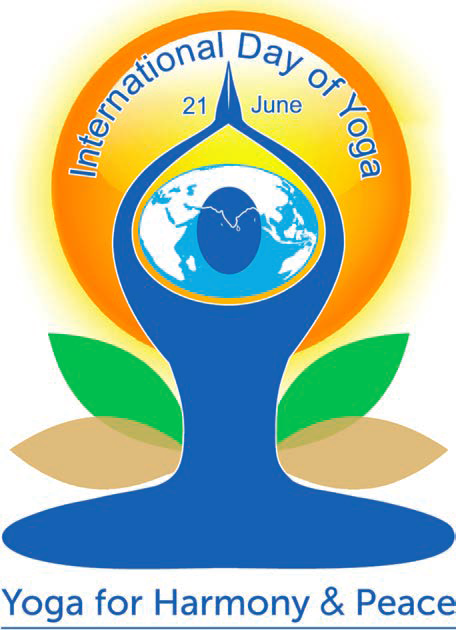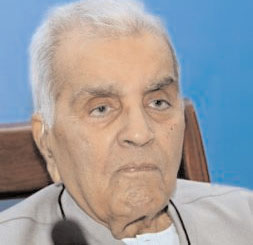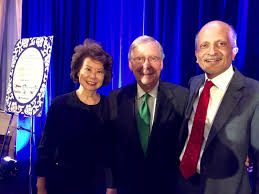
On December 11 in 2014, the United Nations General Assembly declared June 21st as the International Day of Yoga. The declaration came after the call for the adoption of June 21st as International Day of Yoga by Indian Prime Minister, Narendra Modi during his address to the UN General Assembly on September 27, 2014 wherein he stated: “Yoga is a invaluable gift of India‘s ancient tradition. It embodies unity of mind and body; thought and action; restraint and fulfillment; harmony between man and nature; a holistic approach to health and well-being. It is not about exercise but to discover the sense of oneness with yourself, the world and the nature. ” In suggesting June 21, which is the Summer Solstice, as the International Day of Yoga, Narendra Modi had said that, “the date is the longest day of the year in the Northern Hemisphere and has special significance in many parts of the world. ” The first IYD was celebrated on June 21, 2015 at the United Nations, as also across the world. This 21 June will see the third edition of IDY at the United Nations, which is organized by the Permanent Mission of India.
Here are excerpts from the interview.
How you are going to celebrate International Day of Yoga here? We saw a decline in the enthusiasm in people last year. What could be the reason?
Let’s just go by facts. When the event was first organized in 2015, people were invited for only one day and the number was about 350 to 400.Last year if you had a look, more than 1000 people participated and there were two events. One was yoga demonstration in the UN premises in an open space and there were more than 1000 people from more than 130 countries. Also in addition, we started a new element of trying to express what yoga means at an intellectual level. So, we also had it at an economic and social platform where Sadguru talked about his own approach to yoga. This was called ‘Conversations with yoga masters’ and that attracted nearly 500 people. So, if you see both these events combined, this was much larger than the first year and let me add another thing. For the first time the UN building was decorated with yoga asanas projected on it. It has never happened before. So, if you look at how we progressed from one year to another – in terms of enthusiasm it was much more. Let me assure you, this year we will have something more. Last year the images were projected on the lateral side of UN building.This year, if you have seen Diwali images on the UN, it will be like that and we have requested Indian actor Anupam Kher to come and switch on the light. This will start on 18th June – 3 days before International Day of Yoga.
On 20th June, we plan to have a larger assembly of people coming for the yoga demonstration. This will be in the evening at 6 pm and every year we get different yoga masters. This year we are getting Swami Chidanand Saraswati and Sadhvi Vagwati from Rishikesh who are also associated with Hindu Jain Temple in Pittsburg. They will be leading the yoga on 20th June. On each of these days the UN building will lit up with yoga mudras to indicate to the world that the UN is celebrating the International Day of Yoga.
Finally, on the 21st, we will again have a conversation on ‘Yoga for Health’ because as you know the Prime Minister focused on yoga and its benefits in terms of health. So, this year we are having a very interesting combination of different people who have done very well. For example, we are working with WHO (World Health Organization). They will have a conversation on ‘Yoga for Health.’ So, we are having people from other walks of life who have benefitted from yoga. For example, we are having a leading yoga practitioner from Corporate America. His name is Mr Stanten Caber. He is the CEO of Bluechip Marketing Worldwide. It’s a Fortune 500 company. He is coming to say how he has used yoga to improve efficiency in business. So, we are moving from purely physical activities to intellectual to business to health. Let me assure you, there is no lack in terms of our interest and enthusiasm and activism for yoga.
The Prime Minister told me, this should be celebrated with higher interest every year than the last year. I can assure you, as far as we’re concerned, the effort and degree of interest will only keep increasing because yoga itself has become very popular. I went to a school in Bronx. For the students, yoga is India. That is their perception about India. We had a very interesting discussion with 7th 8th grade children and for them climate, environment, yoga – all are interlinked.
So, it will only be on an increase. Is there any special effort from your side to attract people from mainstream?
Yes. We have opened links. Anybody who is interested can register. We’ll provide them the opportunity to come. We have also tagged various yoga organizations to bring in people. So, come on 20th and see how much we’ve progressed compared to last year. There is no limitation on anyone who wants to come.
It’s an open event. You just have to register. It’s a simple online registration. It’s available on our Facebook page and our website. You have to click the link and give your details so that our security people have that information and can give you the entry pass.
How many people do you expect?
Certainly, we expect more people than last year. Last year, it was more than a thousand. This year we expect 1500 to 2000. The place can hold 2500 people. We need support from all organizations to enable us to get the numbers. Yoga is India’s offering but now it has gone global.
When will the registrations close?
48 hours before the event. The earlier people register, the better it is. Already several hundred have registered.
Anything else you want to share?
We are also working with Sahaja Yoga – another organization – on an exhibition at the UN premises. This will be again a first time exhibition on yoga. We will start it on June 19th and it will continue for the week.
 An unrelated question, with your permission.What is the status of India’s bid for permanent seat in the Security Council?
An unrelated question, with your permission.What is the status of India’s bid for permanent seat in the Security Council?
The process began in 1995 when I was here. So, I know the evolution of the process. India’s aspiration to be in the Security Council is a reflection of India regaining its place in terms of where we desire to be in the comity of nations. This is an aspirational goal. We worked with certain belief that it will happen. The issue is when it would happen and it’s only a matter of time. The globe today is passing through some uncertainties. International organizations and the UN in particular are in a stressful situation because there is turbulence and uncertainty in interstate relations. That means the status Quo is no longer tenable. For a country like us, we feel that the status Quo needs to reflect the changed realities. How we work through this turbulence to reach the goal may take some time.
Nobody knows the time specifics. But a country of a billion can’t be kept out of any high table. We are in the era today of democratic governance. It may happen in a year or two years or more. The important thing is we reach the goal. India is now looked at very differently by the world.
It is not the same India that it was in the nineties. They lookat us with a different approach – as a more confident country. As the economy grows, we’ll bring many more things to the table. So, while we work on this we also need to strengthen our economy, our own growth patterns. As we keep growing, it’s only a matter of time. That will be reflected in international organizations.
The world is in a constant “turbulence” which means a permanent seat for India could be indefinitely delayed?
You have to reach a solution at some stage. Global order to survive requires some sort of stability at the end of turbulence. Otherwise what do you have? You have outdated institutions, you have turbulence. If you do not have reform then you have dysfunctional outcomes. We hope the countries work together to reform. A system or order will come out. We will get what we are aspiring for.
What is your call on India-Pakistan relations and the increasing hostility from Pakistan?
I’m not an optimist but a realist. As a realist, we can engage the world as it is now. The world sees India very differently than our neighbor. India has its growth story with an aspiration to live a good life. I do not want to say about others but the world does not see them that way. It is for them to decide what they want. They want to be an aspirational society or a society which is differently structured. It’s their call. As far as we are concerned, we are ready to engage with everyone but for that you need a conducive atmosphere. Unfortunately, Pakistan is not giving that atmosphere. If they give, we’ll certainly try to improve the tie. It is a call for them.





Be the first to comment